Megan Bomgaars Champions Celiac Research for Global Down Syndrome Foundation
March 14th, 2016 by Global Down Syndrome Foundation
The Global Down Syndrome Foundation and Megan Bomgaars, star of A&E’s Born This Way, have teamed up to continue the fight for further research of auto-immune disorders. Megan suffers from celiac disease, an auto-immune disorder that affects people with Down syndrome at a rate ten times greater than in the typical population. Megan launched Global’s celiac disease research and awareness campaign at the March 11th I Love You Dance Party where she danced the night away with 150 celebrants and encouraged fellow self-advocates to participate in a simple Down syndrome and celiac disease research program aptly named “Spit to be Fit!”
Through the Crnic Institute’s Grand Challenge Grant Program, Global funds research by Dr. Richard Spritz, M.D., Program Director for the Human Medical Genetics and Genomics Program at the University of Colorado School of Medicine. Dr. Spritz’ research could lead to a test that identifies people with Down syndrome who have the highest risk for celiac disease and other autoimmune disorders including type 1 diabetes, autoimmune thyroid disease, vitiligo, and rheumatoid arthritis. Early detection would allow early intervention and treatment and could have application to the broader population suffering from such autoimmune disorders.
Celiac disease is an autoimmune disorder where the affected individual has a hypersensitivity to the protein gluten—commonly found in wheat, barley and rye—which, when digested, causes damage to the small intestine. In addition to the common uncomfortable symptoms, some celiac sufferers with Down syndrome have symptoms including anemia and behavioral changes. Megan knows the challenges of celiac disease all too well. Though there is no benefit to a gluten-free diet for those without a celiac disease diagnosis, due to the high incidence of celiac disease in individuals with Down syndrome, experts recommend they get screened for the disorder with a simple blood test.
Introducing Global 2016 Ambassador Louis Rotella IV
March 14th, 2016 by Global Down Syndrome Foundation
Louis “Louie” Rotella IV—the charming boy who inspired his dad to create the celebrated story of acceptance The Little King and His Marshmallow Kingdom—will inspire an audience of 1,200 when he takes to the runway as the 2016 Ambassador at Global’s Be Beautiful Be Yourself Fashion Show on Saturday, November 12.
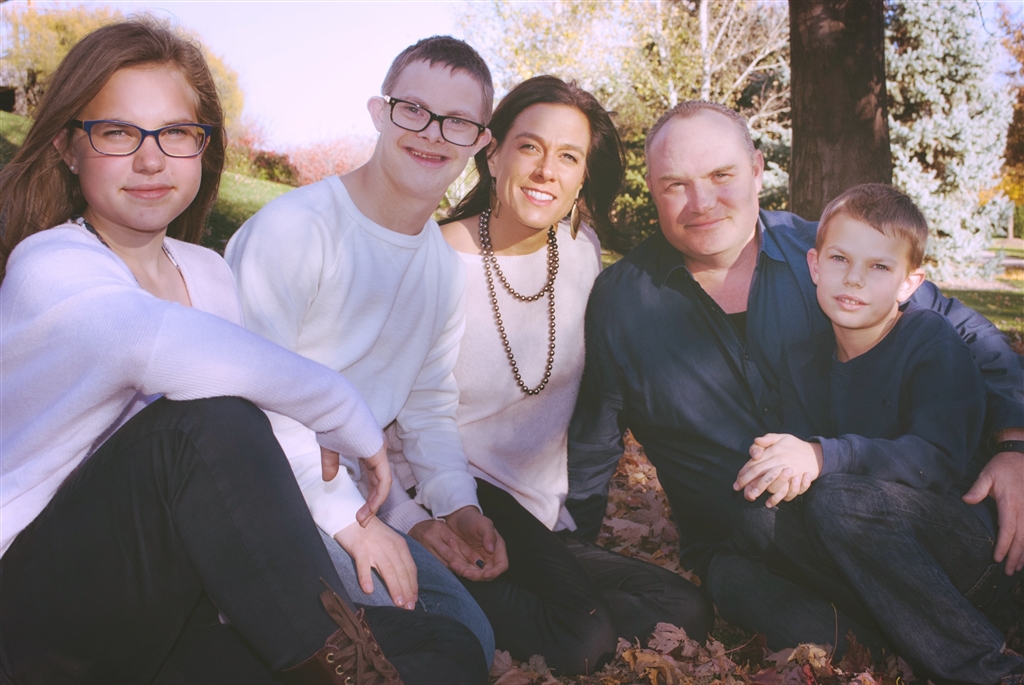
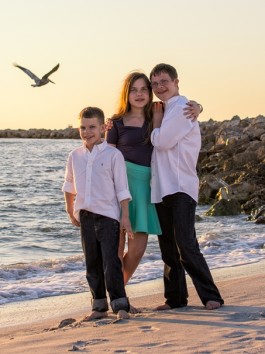
“‘Life with Louie’, that is the saying around our house,” says his mom, Jill Rotella. “Life with Louie is filled with joy, tears, laughter, Marshmallows, and lots of lessons in patience and humor. Our lives are better because of the journey that we travel with Louie! We will be proud and honored to be by Louie’s side during this next adventure on his journey as the 2016 Be Beautiful Be Yourself Fashion Show Ambassador!”
Each year, in addition to choosing 20 self-advocates to model in their fashion show, Global selects an ambassador who graces the front cover of their award-winning invitation. Ambassadors and their families are dedicated to garnering support for Global’s work towards significantly improving the lives of people with Down syndrome through research, medical care, education and advocacy.
Louie’s family owns and operates Rotella’s Italian Bakery Inc., in Omaha, Nebraska, founded in 1921. Baking is a family tradition that goes back five generations, and you can learn more about this dynamic family in this excerpt from Down Syndrome World magazine.
Megan Bomgaars from Born This Way
March 11th, 2016 by Global Down Syndrome Foundation
World Down Syndrome Day
March 9th, 2016 by Global Down Syndrome Foundation
Global Down Syndrome Foundation Announces Plan to Publish Medical Care Guidelines for Adults with Down Syndrome
March 8th, 2016 by Global Down Syndrome Foundation
Denver, CO (March 8, 2016) — Global Down Syndrome Foundation announced that it will produce and publish Medical Care Guidelines for Adults with Down Syndrome. The guidelines, unveiled at the Down Syndrome Affiliates in Action Conference (DSAIA) in Charlotte, NC, will be a community resource with support from Down syndrome organizations in the United States and vetted by a national clearing house for healthcare guidelines.
In Charlotte, eight local Down syndrome organizations pledged $12,000 to support Global Down Syndrome Foundation’s plan. It is anticipated that additional Down syndrome organizations and foundations will join in support. The pledges help offset the significant costs associated with creating, vetting, and publishing the guidelines. The guidelines will be written and published over an 18 month period with the help of a professional working group including Down syndrome medical experts. The published guidelines will be offered at no cost to self-advocates, physicians, family members, caretakers, and Down syndrome organizations locally, regionally, and nationally.
“Having accurate, updated medical care guidelines for adults with Down syndrome is critical to the long-term health of every person in our community,” said Robbin Thomas Lyons, president of Wisconsin Upside Down. “We commend and wholeheartedly support Global for taking on this important work.”
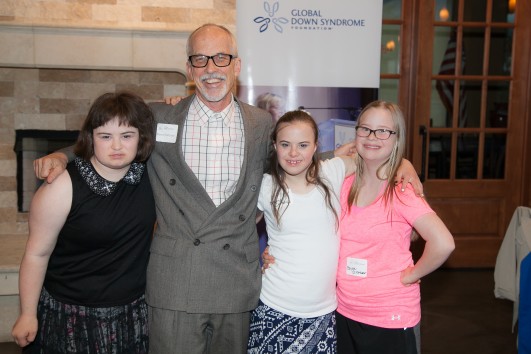
Dr. Dennis McGuire, Global’s award-winning behavioral health specialist and author, with self-advocates at the Spring 2015 Educational Series
The most recent guidelines for adults with Down syndrome were published in 2001 and the fifteen years since have been marked with many advancements in the areas of medical care and research surrounding Down syndrome. Most notably, the life expectancy for someone born with Down syndrome has more than doubled since 1983, from 25 years to 60 years today. With this dramatic advancement, the Down syndrome community faces new challenges including dementia and Alzheimer’s disease, which is estimated to affect over fifty percent of people with Down syndrome and at a younger age than in the typical population.
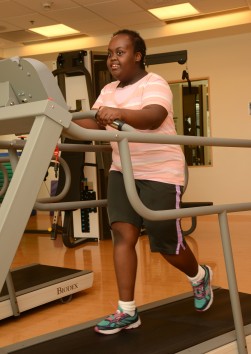
Self-advocate Shima works to stay healthy
The ultimate aim of the guidelines is to improve the quality of care and outcomes for adults with Down syndrome. To this end, the guidelines will develop statements to help clinicians and patients decide on appropriate healthcare for specific clinical conditions and situations.
“We have spent a lot of time and resources researching the best way to go about doing this, and we are so pleased to be able to start this important work with the support of DSAIA and so many local Down syndrome organizations,” said Michelle Sie Whitten, President and CEO of Global Down Syndrome Foundation.
About the Global Down Syndrome Foundation
Global Down Syndrome Foundation is a public nonprofit dedicated to significantly improving the lives of people with Down syndrome through research, medical care, education and advocacy. Global supports two affiliates which together constitute the only academic home in the United States committed solely to research and medical care for people with Down syndrome – the Crnic Institute for Down Syndrome and the Sie Center for Down Syndrome. Global also publishes Down Syndrome World, a national award-winning quarterly magazine. For more information, visit www.globaldownsyndrome.org. Follow Global Down Syndrome Foundation on Facebook & Twitter @GDSFoundation.
MEDIA CONTACT:
Taylor Shields, Global Down Syndrome Foundation
303 468 4975
TShields@GlobalDownSyndrome.org
Global Down Syndrome Foundation Announces Winners of Self-Advocate Employment Initiative Grants
March 4th, 2016 by Global Down Syndrome Foundation
Recipients includes eight organizations in seven states
CHARLOTTE, NC (March 4, 2016) – Today, during the Down Syndrome Affiliate in Action (DSAIA) conference, Global Down Syndrome Foundation announced the winners of its first annual Employment Initiative Grant. These grants will empower local Down syndrome organizations to hire individuals with Down syndrome and to help attract sustainable funding from other sources in the future.
“We are pleased to announce such worthy winners of Global Down Syndrome Foundation’s first ever Employment Initiative Grant,” said president and CEO Michelle Sie Whitten. “With the great work that each of these organizations tackle I look forward to continuing to create further employment opportunities for people with Down syndrome.”
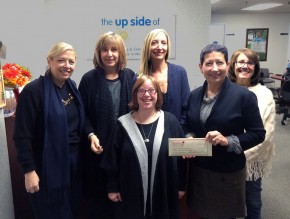 The Self-Advocate Employment Initiative grants will impact communities across America, with winners from Down syndrome advocacy groups in Danville, CA; Independence, OH; Tiburon, CA; St. Francis, WI; Danville, CA; Memphis, TN; Roswell, NM; Ewing, NJ; and Boynton Beach, FL. In its inaugural year, recipients will use the grant to hire new employees with Down syndrome, or continue employment of existing employees with Down syndrome originally made possible from previous grants that have since expired. Self-advocates will be performing a variety of jobs including medical advocacy, landscaping, conducting ability awareness workshops at schools, and teaching sign language. In total, this grant program will support the employment of fourteen self-advocates in 2016.
The Self-Advocate Employment Initiative grants will impact communities across America, with winners from Down syndrome advocacy groups in Danville, CA; Independence, OH; Tiburon, CA; St. Francis, WI; Danville, CA; Memphis, TN; Roswell, NM; Ewing, NJ; and Boynton Beach, FL. In its inaugural year, recipients will use the grant to hire new employees with Down syndrome, or continue employment of existing employees with Down syndrome originally made possible from previous grants that have since expired. Self-advocates will be performing a variety of jobs including medical advocacy, landscaping, conducting ability awareness workshops at schools, and teaching sign language. In total, this grant program will support the employment of fourteen self-advocates in 2016.
Using the grant to support the most self-advocates of all the winners is Down Syndrome Connection of the Bay Area (DSCBA). This grant will help to increase the hours of four already employed self-advocates:
- Eli has worked with DSCBA since 2009 when he and classmates first created a presentation to teach school children how to include, respect, and support individuals with Down syndrome. He has since given this presentation to classes from kindergarten through college and also volunteers in a 1st grade classroom and with Meals on Wheels.
- Between volunteering at his local library twice a week and serving as an usher at his church, Joseph supports the DSCBA headquarters as an administrative assistant, which helps him live in his own apartment.
- Marissa’s 2-year postsecondary work with the Wayfinders Program at California State University in Fresno has equipped her to serve as a teaching assistant at an early education center, operations and event assistant at an event center, assistant food server, and DSCBA’s Community Outreach Associate.
- K. Leigh balances two jobs, one as a teaching aid for children with disabilities, which she enjoys because the “kids are loveable, make [her] happy, and are so fun.” She has played clarinet for twe
nty years and performs for her DSCBA colleagues at each year’s holiday party.
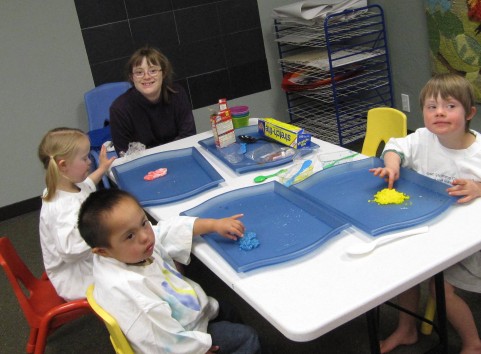 “This grant will enable Down Syndrome Connection of the Bay Area to increase the hours, thereby income, of four individuals in our community with Down syndrome,” said executive director Nancy Labelle. “This is another great example of the benefits we receive as an official member of the Global Down Syndrome Foundation.”
“This grant will enable Down Syndrome Connection of the Bay Area to increase the hours, thereby income, of four individuals in our community with Down syndrome,” said executive director Nancy Labelle. “This is another great example of the benefits we receive as an official member of the Global Down Syndrome Foundation.”
On the other end of the spectrum, Down Syndrome Association of Central New Jersey will make major strides as the grant from Global will not only allow them to hire their first employee with Down syndrome, but their first employee overall; currently, they are purely volunteer based. This employee will join medical advocacy campaigns, help plan events, and be responsible for periodically self-ranking their performance as part of the review process.
“The Down Syndrome Association of Central New Jersey is especially appreciative of this grant as we are a small organization with big goals,” said president Melissa Burgos. “We’re excited to hire our first employee with Down syndrome and about the impact he or she will have on our work.”
It has been reported that those who have a co-worker with Down syndrome have higher work satisfaction levels; Global Down Syndrome Foundation hopes to spread the positive impact by supporting more people with Down syndrome in the workforce in the coming years through the annual employment initiative grants. Eligibility to receive an employment initiative grant is just one of the benefits of Global membership. To learn about other member benefits and to become a member please visit the membership page.
Global Down Syndrome Foundation Announces Plan to Publish Medical Care Guidelines for Adults with Down Syndrome
March 4th, 2016 by Global Down Syndrome Foundation
Denver, CO (March 8, 2016) — Global Down Syndrome Foundation announced that it will produce and publish Medical Care Guidelines for Adults with Down Syndrome. The guidelines, unveiled at the Down Syndrome Affiliates in Action Conference (DSAIA) in Charlotte, NC, will be a community resource with support from Down syndrome organizations in the United States and vetted by a national clearing house for healthcare guidelines.
In Charlotte, eight local Down syndrome organizations pledged $12,000 to support Global Down Syndrome Foundation’s plan. It is anticipated that additional Down syndrome organizations and foundations will join in support. The pledges help offset the significant costs associated with creating, vetting, and publishing the guidelines. The guidelines will be written and published over an 18 month period with the help of a professional working group including Down syndrome medical experts. The published guidelines will be offered at no cost to self-advocates, physicians, family members, caretakers, and Down syndrome organizations locally, regionally, and nationally.
“Having accurate, updated medical care guidelines for adults with Down syndrome is critical to the long-term health of every person in our community,” said Robbin Thomas Lyons, president of Wisconsin Upside Down. “We commend and wholeheartedly support Global for taking on this important work.”
The most recent guidelines for adults with Down syndrome were published in 2001 and the fifteen years since have been marked with many advancements in the areas of medical care and research surrounding Down syndrome. Most notably, the life expectancy for someone born with Down syndrome has more than doubled since 1983, from 25 years to 60 years today. With this dramatic advancement, the Down syndrome community faces new challenges including dementia and Alzheimer’s disease, which is estimated to affect over fifty percent of people with Down syndrome and at a younger age than in the typical population.
The ultimate aim of the guidelines is to improve the quality of care and outcomes for adults with Down syndrome. To this end, the guidelines will develop statements to help clinicians and patients decide on appropriate healthcare for specific clinical conditions and situations.
“We have spent a lot of time and resources researching the best way to go about doing this, and we are so pleased to be able to start this important work with the support of DSAIA and so many local Down syndrome organizations,” said Michelle Sie Whitten, President and CEO of Global Down Syndrome Foundation.
About the Global Down Syndrome Foundation
Global Down Syndrome Foundation is a public nonprofit dedicated to significantly improving the lives of people with Down syndrome through research, medical care, education and advocacy. Global supports two affiliates which together constitute the only academic home in the United States committed solely to research and medical care for people with Down syndrome – the Crnic Institute for Down Syndrome and the Sie Center for Down Syndrome. Global also publishes Down Syndrome World, a national award-winning quarterly magazine. For more information, visit www.globaldownsyndrome.org. Follow Global Down Syndrome Foundation on Facebook & Twitter @GDSFoundation.
MEDIA CONTACT:
Taylor Shields, Global Down Syndrome Foundation
303 468 4975
TShields@GlobalDownSyndrome.org

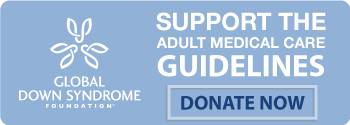
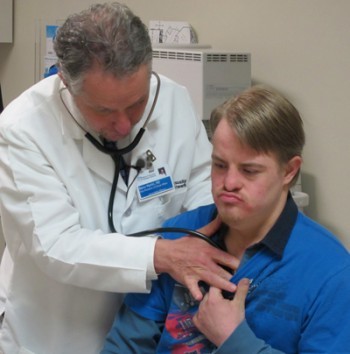
 Experience our inspirational and groundbreaking videos and photos. Our children and self-advocates are beautiful AND brilliant!
Experience our inspirational and groundbreaking videos and photos. Our children and self-advocates are beautiful AND brilliant! Make sure your local Representatives are on the Congressional Down Syndrome Task Force.
Make sure your local Representatives are on the Congressional Down Syndrome Task Force.